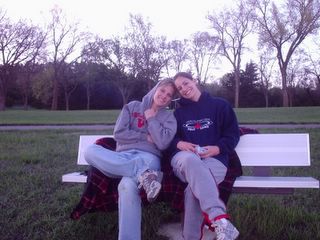[Volante Article - Issue 4/20/05]
Life is unfair. Are you barely 5 feet 5 inches tall while the rest of your family towers over 6 feet, including your little brother? Do you struggle with scientific terms as your best friend aces every test without cracking their textbook? Some of us were raised in rich families with a pool in the backyard and a beach house in Florida. Others grew up dirt poor, looking forward to a Christmas consisting of a few threadbare socks hanging above a small space heater and a 4 foot tall tree rotting away in a corner.
It's obvious that people are born and raised with families, experiences and traits that are unique to that individual. Some of us are coordinated, athletic and muscular, while others are tall, skinny and accident-prone. Some of us struggle with classes, while others are too smart for their own good. This leads to an interesting question relating to success and skill: Is it what you have, or what you do with what you have?
What you have is obviously important. You can't be a basketball star if you don't have the skills to become one. But, are these talents of agility, speed and coordination hereditary, or learned from early experiences? One factor is the likeliness of a child to be involved in the same activities as his or her sibling(s). While the youngest child will want to define their own status, the chances are that he or she could be a basketball star. We all know families who produce athletically phenomenal children. Most of the credit for this is due to the experiences the children have and their family environment.
Natural talent is essential; it does depend in part on heredity. But how necessary is talent? Take the example of a sense of humor. This is one trait that is more learned than inherited. A son may have a similar sense of humor as his father, which could be due to many things. The son may look up to his father, see him as his hero and want to act like him. The way the son perceived his father when he was younger is very important, and the son commonly ends up copying his father's behavior as he grows up.
I do believe that a gene increases the chances of how you will behave, but the qualities you inherit will not "make" you do one thing over another. The importance lies with what you do with those skills. If you don't practice, these skills can't develop and natural talent ends up being wasted.
I am making the significance of nurturing your skills very evident. In truth, what you have and what you do with what you have is important. But, the latter tips the scale. What you are experiencing today, right now, will affect what you are going to do after you read this article. Whether you roll your eyes, sit and ponder my crazy thoughts or scratch your head in confusion depends on what you've done in the past after you've read an off the wall opinion article. Either way, the experiences you have in early life directly affect the rest of your life, whether you like it or not.
